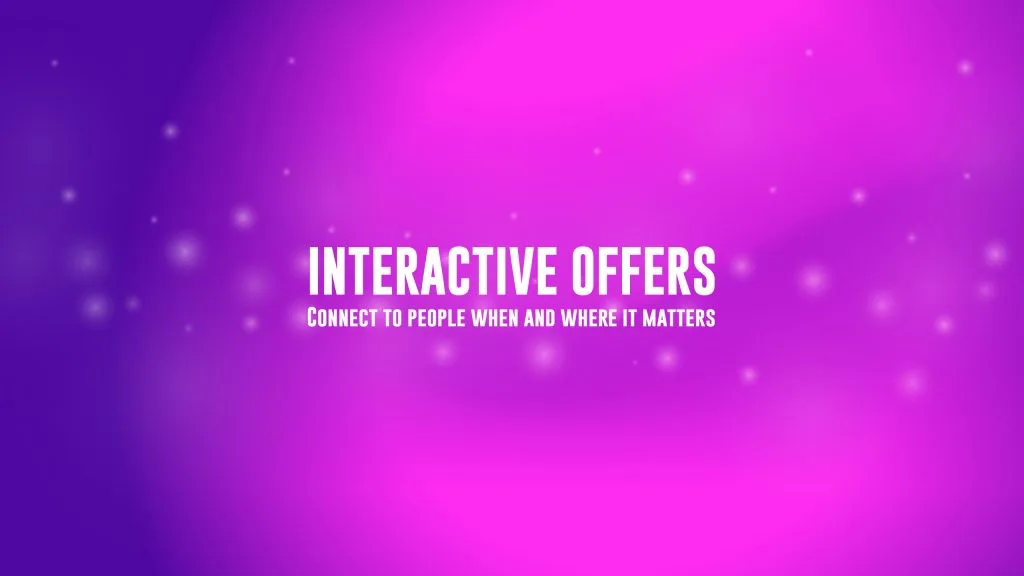Notifications

7 minutes, 32 seconds
-105 Views 0 Comments 0 Likes 0 Reviews

With cannabis still federally illegal, the industry finds it consistently difficult to advertise and create brand awareness without violating federal guidelines.
The branding, advertising, and marketing space in the legal industry is notoriously murky to navigate, with constantly-changing regulations and wildly different requirements depending on what state or region you’re advertising in.
This has forced the hand of strategic brand agencies to get more creative than ever before – like Interactive Offers, who utilize native advertisements to elude restrictions and connect with target audiences in a lasting and impactful manner that can have a transformative effect on how the legal industry markets itself.
Leafwire sat down with Interactive Offers co-founder Wesley de Souza to discuss their unique approach to branding and the impact it’s already having on legal cannabis today.
Leafwire: How was Interactive Offers first founded?
Wesley de Souza: Originally, I ran an ad agency that handled a lot of media buying and placements for major publicly traded companies not in the cannabis or CBD space. We focused on buying media, placing content, and other forms of advertising. We found ourselves spending so much money on programmatic advertising and some of the media we had to utilize just wasn’t great, so we decided to start our own platform.
LW: What sort of needs does Interactive Offers meet for the industry?
WDS: interactive offers focuses on smaller niches. Google and related companies have programmatic ad features on a monopoly, so we found a little niche within the email space. Running a programmatic ad stack within email and programmatic Click to opt in. That’s our main focus: helping companies build out their own data base which lead to much higher conversions / ROI.
LW: Why did you decide to focus on cannabis and CBD?
WDS: For us, it was a two-step process. A CBD company actually acquired us to begin with. They’ve since switched their focus to be more of a brand aggregator, but at the time they were strictly CBD. So that was one reason, but another is that we don’t have to abide by any ad exchange rules, because we don’t tie into any ad exchanges. The bigger ad exchanges will deny campaigns simply because they don’t understand the industry. Which allows us to take full advantage of the over looked markets.
LW: What sort of benefit does that provide you?
WDS: All the publications we have on our platform are directly coded either in newsletters or on the website, so we don’t need approval for any ad exchanges or a DSP or whatever the case may be. Essentially, a lot of those regulations the CBD industry has to abide by on Google, Bing, or any other platform – we don’t have to worry about those setbacks.
LW: Without those headaches to worry about, what other tricky things have you come across operating within the cannabis/CBD space?
WDS: Well, I think our biggest setback is the option for scalability. If a client wants to spend $50,000 or $100,000 on advertising per month, we can easily do it for the financial industry, for example. But for CBD or Cannabis , we might find it difficult to spend a budget on that level – it’ll take us longer and be on a smaller scale than other industries, which can pose some issues.
LW: How does the Interactive Offers platform work to help build a cannabis or CBD brand?
WDS: With cannabis, we can get really specific with targeting, because we base it all on email address rather than IP address, which uses households. We also focus on click-to-opt-in funnels instead of cost-per-click or cost-per-impression, meaning the advertisers will only pay us per lead delivered.
Take the brand Peet’s Coffee as an example – we help them build out an email funnel to reengage clients, but only charge them per email that makes it into their funnel. This allows brands to have more than one chance at an upsell.
Let’s say a consumer subscribes to an email newsletter for a thirty percent-off coupon on their next purchase – that advertiser now has another chance to contact that user until they purchase a product or hit unsubscribe. We’ve taken that concept and applied it to every industry we operate in, including CBD and cannabis.
LW: What do you think the future of cannabis ad tech is? Do you see more brands turning to this style of advertising?
WDS: Absolutely. This model provides more value to the advertiser. They can get instant sales off the database we’re constantly acquiring on their behalf. Our platform also allows you to work both ways, meaning an advertiser can also be a publisher and increase that cart value for every sale they have.
For example, on an advertiser’s transactional page, we’ll display a series of ads that aren’t in competition to what they’re selling – more e-commerce ads like Macy’s, Peet’s Coffee, etc. Then, they’re able to increase the value of each cart because they’re selling that lead, if the user accepts and clicks.
An advertiser can also publish and increase each value of their cart, essentially making more money off each buyer.
Business THC Brands Marketing Cannabis Cannabis business Cannabiz B2B Brand Cannabis industry Advertising

We believe in the power of connections. Our platform is more than just a social networking site; it's a vibrant community where individuals from diverse backgrounds come together to share, connect, and thrive.
We are dedicated to fostering creativity, building strong communities, and raising awareness on a global scale.
Share this page with your family and friends.